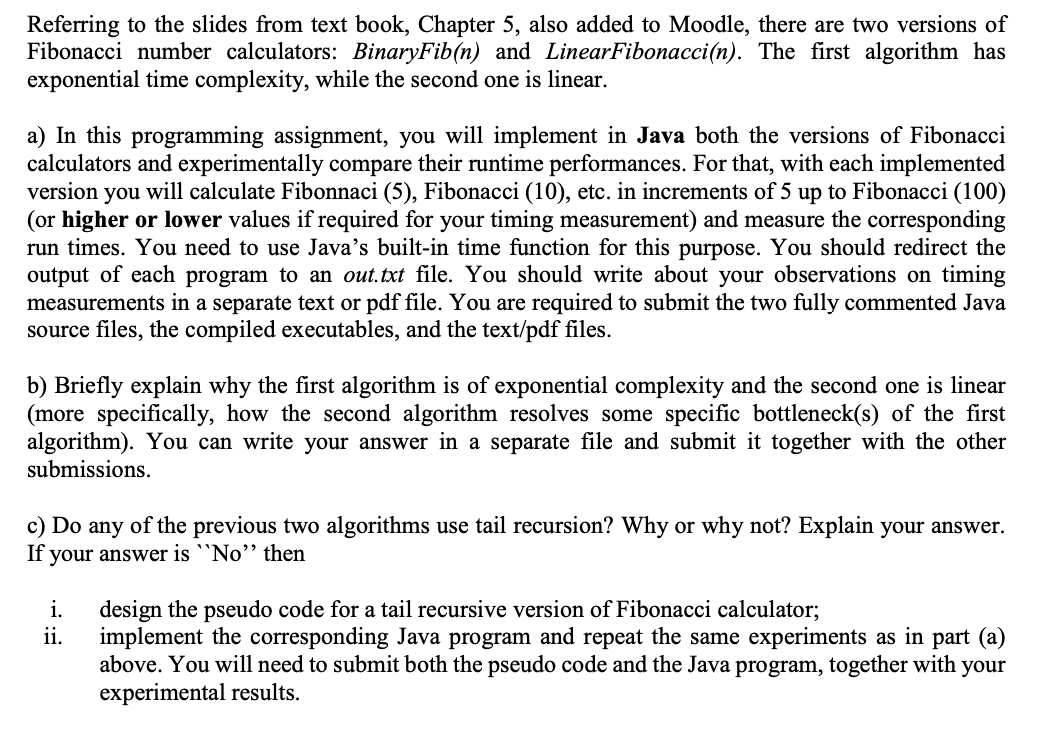Question: Referring to the slides from text book, Chapter 5 , also added to Moodle, there are two versions of Fibonacci number calculators: BinaryFib(n) and LinearFibonacci(n).

Referring to the slides from text book, Chapter 5 , also added to Moodle, there are two versions of Fibonacci number calculators: BinaryFib(n) and LinearFibonacci(n). The first algorithm has exponential time complexity, while the second one is linear. a) In this programming assignment, you will implement in Java both the versions of Fibonacci calculators and experimentally compare their runtime performances. For that, with each implemented version you will calculate Fibonnaci (5), Fibonacci (10), etc. in increments of 5 up to Fibonacci (100) (or higher or lower values if required for your timing measurement) and measure the corresponding run times. You need to use Java's built-in time function for this purpose. You should redirect the output of each program to an out.txt file. You should write about your observations on timing measurements in a separate text or pdf file. You are required to submit the two fully commented Java source files, the compiled executables, and the text/pdf files. b) Briefly explain why the first algorithm is of exponential complexity and the second one is linear (more specifically, how the second algorithm resolves some specific bottleneck(s) of the first algorithm). You can write your answer in a separate file and submit it together with the other submissions. c) Do any of the previous two algorithms use tail recursion? Why or why not? Explain your answer. If your answer is " No'" then i. design the pseudo code for a tail recursive version of Fibonacci calculator; ii. implement the corresponding Java program and repeat the same experiments as in part (a) above. You will need to submit both the pseudo code and the Java program, together with your experimental results
Step by Step Solution
There are 3 Steps involved in it

Get step-by-step solutions from verified subject matter experts


